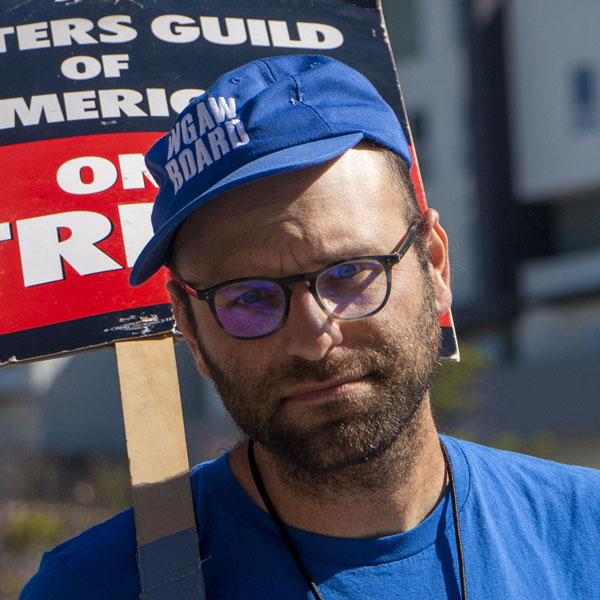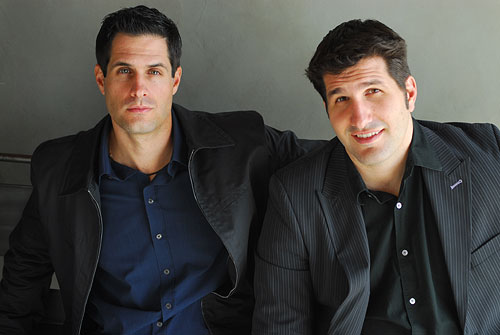WGAW provides animation writers support to secure WGA contracts.
1/23/2026 • Evan Henerson
His Name is Reo and He Can Spin a Tale
2026 TV Laurel Award Honoree Don Reo reflects on his career.
In 2022, WGAW Board member and showrunner Raphael Bob-Waksberg walked away from an animation project he was attached to when the production company he was dealing with refused to grant the show WGA coverage. Bob-Waksberg, creator of the successful WGA-covered BoJack Horseman, only works under WGA contracts. While it was a disappointing and discouraging experience, Bob-Waksberg has continued to fight for WGA coverage. He and other members of the WGAW’s Animation Organizing Committee (AWOC) have been sharing their experiences with fellow members to encourage them to fight for a WGA deal.

Earlier this year, the AWOC, co-chaired by former WGAW Presidents David A. Goodman and Patric M. Verrone and showrunner Mike Scully, offered a series of workshops to both TV and Screenwriters developing animated projects and seeking Guild coverage.
Goodman explains that there’s a false assumption among some writers that they will automatically work under a WGA contract when they work in animation.
“Some writers are in for a rude awakening when they discover that a lot of animation is currently not covered by the WGAW,” said Goodman, “It's the opposite of everything else that happens in our union.”
While the workshops are most valuable to those currently developing an animated project, they can also be helpful to any writer who is interested in learning more about Guild coverage in animation. The workshop outlines the benefits of working under a WGA contract: residuals, pension and health benefits, Guild-determined writing credits, safeguards around options and exclusivity, and more. They also provide individual writers with an opportunity to discuss their projects and receive advice from facilitators and the group.
Members are encouraged to make it clear to their agents and managers that Guild coverage is a priority and to enlist the support of talent as early as possible. Goodman explains how Chris Rock advocated for WGA coverage for the writers on the animated version of Everybody Hates Chris which helped them secure a Guild deal. Finally, writers need to be prepared to walk away if the company they are dealing with refuses WGA coverage.

My opinion is fight the good fight. Try to get the coverage.
- Charley Parlapanides
One helpful tool for writers in the early stages of development is the list of Guild covered animation projects by studio on the WGAW Animation webpage. Writers can learn which studios may be receptive to WGA coverage and which they may want to avoid.
“None of us got to where we are alone,” says Goodman, who joined Family Guy after the writers on the series organized with the WGAW. “I benefited from the fights that others took up. The members of this union understand how necessary it is to support one another.”
Charley Parlapanides—co-creator with his brother Vlas of Blood of Zeus—has participated on AWOC panels and says the workshops provide attendees with the information they need to make the best possible push for Guild coverage. The second season of Blood of Zeus is scheduled to premiere on Netflix in May.

“My opinion is fight the good fight,” Charley says. “Try to get the coverage.”
In 2018, when they were negotiating with Netflix, the brothers emphasized from the outset that Blood of Zeus needed to be covered under a WGA contract.
“We told them we wouldn’t be able to do it otherwise, and they agreed. It was never an issue and it was never discussed again,” Charley says.
“At the end of the day, it really does matter for us, for our families, to have those pension contributions and those health contributions,” Vlas adds.
Bob-Waksberg maintains that when it comes to negotiating with studios, writers should have confidence in their work and their stance.
“I think this is worth drawing a line in the sand,” Bob-Waksberg says. “I think it is worth it for most of our members to walk away from bad deals, and I think not getting WGA coverage is a bad deal.”
If you are pitching or approached about an animation TV or film project and want it to be covered by a WGA agreement, contact Cathy Genovese in Member Organizing.